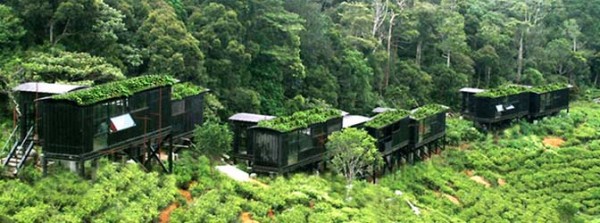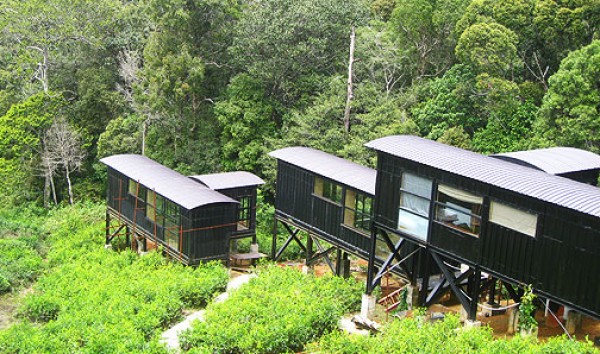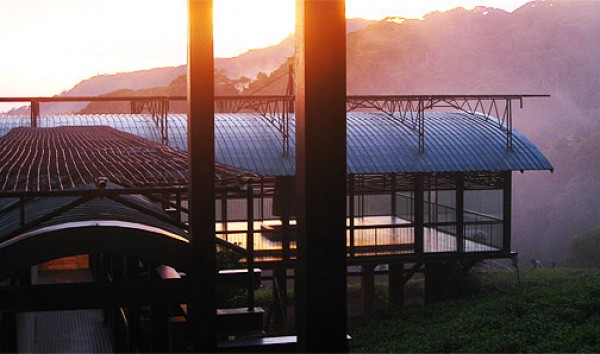If you build a lodge for eco-tourism and you site it within an endangered tropical rainforest, you’d better make sure it meets the highest environmental standards. A new Sri Lankan resort called the Rainforest Ecolodge met that challenge by earning LEED Platinum certification for new construction and major renovations, the first-ever such designation for the country’s tourism sector.
The 16 chalet-style lodges of the Rainforest Ecolodge opened this month, bordering the southeastern edge of the Sinharaja Rainforest in Sri Lanka. The property, sited on a 500-acre portion of the Enselwatte Tea Estate, plunges visitors in the middle of nature and provides 360-degree views of the tea bushes and surrounding forest reserve.

With the assistance of its Project LEED consultant, Green Technologies, the Rainforest Ecolodge has successfully adopted a number of environmentally sensitive attributes, such as a stormwater management system, green roofs on some chalets and water-efficient landscaping that reduces the use of potable water by 60 percent. A harvested rainwater system also has completed eliminated the need for using potable water for sewage conveyance.

Each of the chalets consists of a bedroom, washroom, living room and balcony. The main structure of the lodge includes a lounge, a restaurant, kitchen, reception area, visitor’s center and research station. During construction of the chalets, the lodge use salvaged, recycled, refurbished or reused materials whenever possible from local sources.

The facility has achieved energy savings in excess of 54 percent, partially through the use of large windows to provide natural ventilation and draws in daylight to reduce reliance on HVAC and electric lighting. The HVAC system also uses no CFC-based refrigerants.
To lessen to impact of single-occupancy vehicles, the lodge provides a shuttle services for guests and includes preferred parking spaces for low-emitting and fuel-efficient vehicles, as well as bicycle storage spaces.
“The eco-lodge initiative remains central to the strategy of building sustainable tourism based on Sri Lanka’s unique biodiversity richness,” said Prema Cooray, chairman of the Rainforest Ecolodge. “The lodge conforms to environmental best practices in design and management, following international ecotourism guidelines in Sri Lanka for the first time, and also supports conservation activity in the forest buffer of the threatened Sinharaja Rainforest, a UNESCO World Heritage Site.”